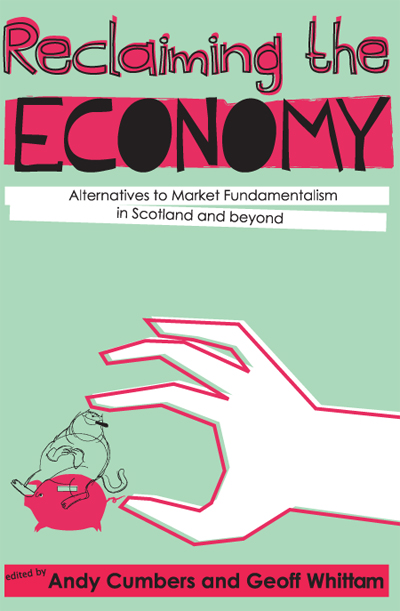The Scotland Bill is Broken
 As the Tory-Liberal shock doctrine begins to bite and the logic of cuts is internalised by many of us as the relentless messaging of ‘inevitability’ and ‘pragmatism’ is churned out, it’s important to fightback. As Alex Porter has written at Newsnet (‘Scotland’s Choice: Calman’s Gulag or Economic Independence‘):
As the Tory-Liberal shock doctrine begins to bite and the logic of cuts is internalised by many of us as the relentless messaging of ‘inevitability’ and ‘pragmatism’ is churned out, it’s important to fightback. As Alex Porter has written at Newsnet (‘Scotland’s Choice: Calman’s Gulag or Economic Independence‘):
“Evidence from around the world is that austerity makes the economy worse. Argentinians were told this economic medicine would help and their economy imploded. How did we get to the stage where austerity is being rolled out in defiance of public opinion? Whose interests does austerity really serve? Meaningful questions for the people who will be affected most by the cuts in public services – the poor, the low paid, the students and the heavily indebted home-owning working class.”
It’s in the context of these austerity measures that we consider the Scotland Bill – the detailed outline of Calman, and its potentially dreadful consequences for the Scottish economy.
The Scottish Left Review – regular as clockwork has turned out fine analysis for the last decade. Breaking with tradition they have just published this important article on the Scotland Bill, by independent economists Jim and Margaret Cuthbert (see full article here):
If the Scottish Parliament uses its tax powers successfully, it loses money. If it doesn’t use its tax powers successfully, it loses money. Given that Jim and Margaret Cuthbert already pointed out this serious flaw, why is it still there?
The Scotland Bill, which is intended to implement many of the proposals stemming from the Calman Commission, was published by the Westminster government on St Andrews Day. In many ways, the central plank of the Bill is the proposal relating to the Scottish rate of income tax. In this paper, we will show:
- how these income tax proposals suffer from grave technical flaws:
- how this threatens serious damage to the Scottish economy:
- and why, in political terms, the Bill constitutes a minefield for Labour in particular.
We should start by making our own position clear. In principle, we very much support meaningful new powers for the Scottish Parliament: and we support the objective of increasing accountability. But as regards tax powers, it is essential that they are well formulated and not technically flawed: otherwise they could constitute a trap for the wellbeing of the Scottish economy.
The original Calman proposals were published in June 2009. In July 2009, we published an open letter to the Calman Commission pointing out that its proposals on income tax were technically flawed. There were, in fact, two main flaws. It is worth describing these at this point in the paper, because the same problems are still there in the income tax proposals in the Scotland Bill.
Under the Calman proposals, the Scottish Parliament would be responsible for setting a Scottish rate of income tax every tax year. More specifically, all of the rates of income tax levied on the non-savings income of Scottish taxpayers would be reduced by 10 pence: and the new Scottish rate of income tax would be levied on top of this reduced level. Correspondingly, the block grant from the UK Government would be reduced to reflect the loss to the UK exchequer from the reduction in the UK tax rate charged to Scottish taxpayers.
So if the Scottish government were to set its tax rate at ten pence, it would, at least initially, get back by way of income tax the same amount as had been deducted from its block grant. Now consider what happens if the Scottish government reduced the Scottish rate of income tax to below 10 pence: the most obvious reason being as part of an overall package of measures designed to make Scotland a more competitive place to do business and to stimulate the Scottish economy. Suppose total income tax receipts collected in Scotland, (from the combined UK and Scottish tax rates), rose as a result of this stimulus package. Would the income tax receipts coming to the Scottish government rise too? In fact, because the Scottish government would be getting a decreasing share of the increased total income tax take, the receipts coming to the Scottish government could well fall.
